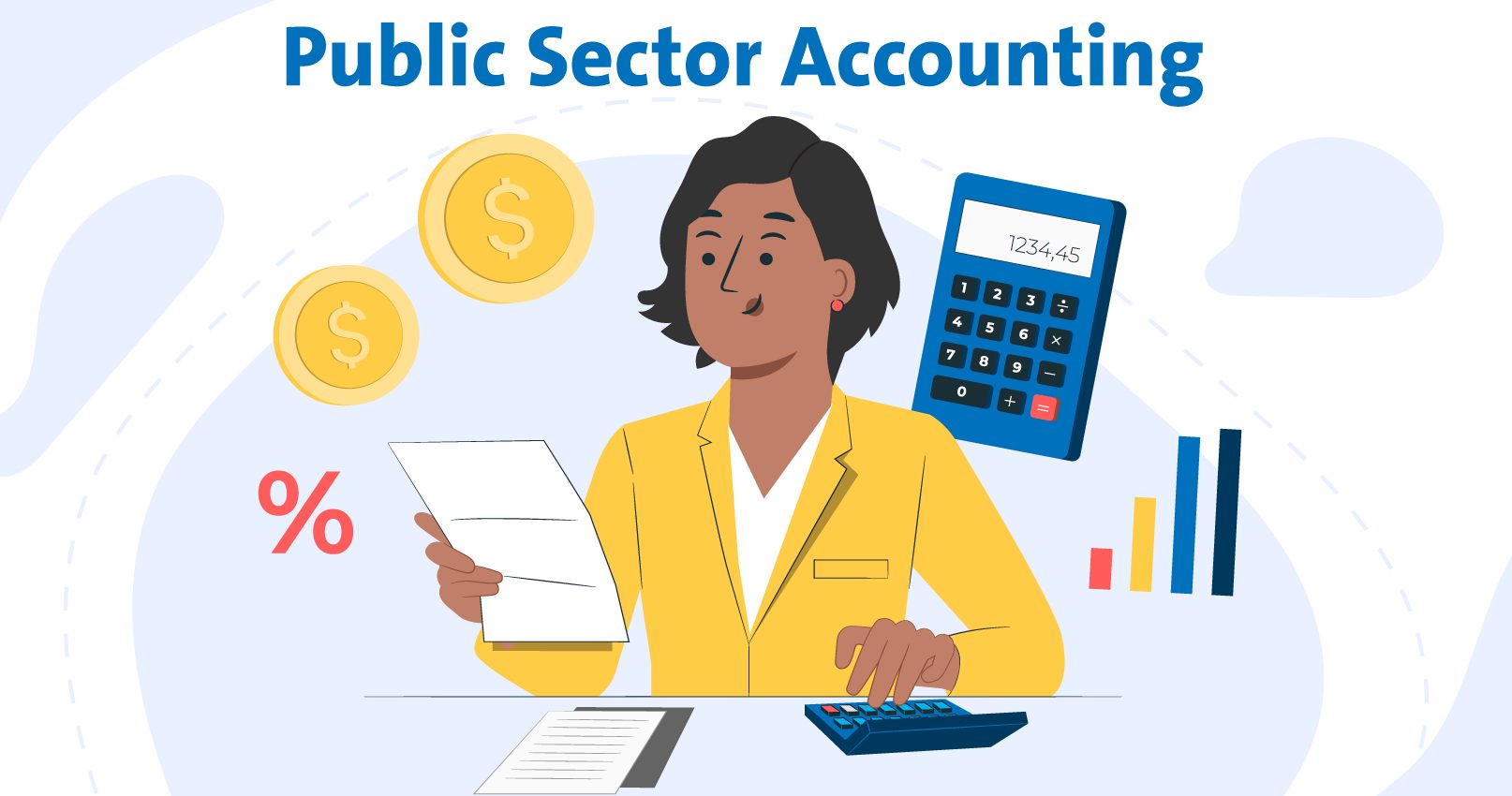Governmental accounting can be a challenging subject for students, but it offers a wealth of research opportunities that are both insightful and impactful. By mastering the basics of governmental accounting and selecting engaging Governmental Accounting Research Topics, students can contribute meaningfully to the field and make strides in the increasingly digital and data-driven era.
This guide introduces the fundamentals of governmental accounting, provides tips for choosing a compelling research topic, and lists 99 trending topics to inspire your thesis.
Understanding the Basics of Governmental Accounting
Before diving into research, it’s essential to understand the foundational concepts of governmental accounting. Unlike private sector accounting, governmental accounting focuses on public entities—such as federal, state, and local governments—where funding comes primarily from taxes and grants, not the sale of goods or services. Below are key concepts every student should grasp:
1. Fund Accounting
Governmental accounting uses fund accounting to ensure accountability by dividing financial resources into distinct categories or “funds.” This structure helps track the allocation and usage of resources for specific purposes.
2. General Fund
The general fund is the primary operating fund used to manage revenues and expenditures not assigned to other funds. It is central to the financial operations of governmental entities.
3. Budgeting
Governments operate on budgets, which are legally binding documents outlining projected revenues and expenditures. Understanding how budgets are created, approved, and controlled is a critical step in governmental accounting research.
4. Reporting Standards
Governmental entities follow the Governmental Accounting Standards Board (GASB) guidelines, while nonprofits adhere to the Financial Accounting Standards Board (FASB). GASB ensures standardized and transparent reporting, making it easier to compare financial statements across entities.
5. Key Financial Statements
In governmental accounting, financial statements include:
- Balance Sheet: Reflects the entity’s financial position.
- Statement of Revenues, Expenditures, and Changes in Fund Balances: Tracks financial performance.
- Cash Flow Statement: Shows cash inflows and outflows.
These statements provide critical insights into the fiscal health and financial operations of governmental organizations.
6. Audits
Audits are mandatory for governmental entities to ensure compliance with regulations and assess the quality of financial reporting. Understanding the audit process is vital for research in this field.
Mastering these basics will equip you with the knowledge needed to select and explore impactful research topics in governmental accounting.
How to Choose a Research Topic in Governmental Accounting
Selecting a research topic may seem daunting, but with the right approach, it can be an exciting process. Here are some tips to help you choose a topic that is both engaging and feasible:
1. Identify Your Interests
Start by focusing on areas of governmental accounting that intrigue you. Are you drawn to topics like budgeting, fund accounting, or audits? A genuine interest in your subject will make the research process more enjoyable and fulfilling.
2. Conduct a Literature Review
Explore recent studies and publications in governmental accounting to identify trends and gaps in research. This will help you choose a unique and relevant topic.
3. Focus on Real-World Applications
Select a topic with practical implications for government entities. Research with real-world relevance, such as improving budgeting practices or enhancing financial transparency, tends to have a broader impact.
4. Seek Feedback
Discuss potential topics with professors, peers, or professionals in the field. Their insights can help refine your ideas and ensure your topic is both interesting and valuable.
5. Evaluate Feasibility
Ensure your chosen topic is manageable within the scope of your resources, time frame, and available data. Avoid overly broad or complex topics that may be difficult to research effectively.
By following these steps, you’ll be better equipped to select a topic that not only aligns with your interests but also contributes meaningfully to the field of governmental accounting.
Dissertation Topics Brief Service
At dissertation-help.co.uk, we offer a comprehensive Dissertation Topics Brief Service to help you select a suitable dissertation topic. Our expert writers can help you generate ideas and outline a detailed topic brief of 500 words. This service ensures that you are headed in the right direction for your dissertation, with a clear and focused topic that meets academic standards.
Paid Topic Consultation Service
You will get the topics first as per the given requirements, and then the brief which includes;
- An explanation why we choose this topic.
- 2-3 research questions.
- Key literature resources identification.
- Suitable methodology with identification of raw sample size, and data collection method
- View a sample of topic consultation service
Download Sample Dissertations Pdf
Before you start working on your own dissertation, it’s helpful to take a look at some sample dissertations. Our collection of sample dissertations covers a wide range of civil law topics and can give you a better understanding of how to structure and write your own dissertation.
You can download free dissertation samples and topic briefs to get an idea of how to approach your topic and craft an engaging dissertation. This can serve as inspiration and guidance throughout your research process.
99+ Hot Topics in Governmental Accounting: What to Focus On
Explore compelling Governmental Accounting Research Topics, including public sector financial transparency, budgeting policies, tax revenue management, audit effectiveness, and the impact of governmental regulations on financial reporting. Discover key areas for impactful research in public finance and accountability.
1. Government Financial Reporting & Standards
- The impact of GASB Statement No. 87 on lease accounting for governmental entities.
- Examining the challenges of financial reporting for public sector entities.
- Analyzing the effectiveness of financial reporting standards for public sector entities.
- The impact of government accounting on the transparency of public sector financial reporting.
- Examining the financial reporting requirements for public hospitals, public utilities, and public transportation agencies.
- The role of governmental accounting in ensuring financial accountability of public officials.
2. Budgeting & Fiscal Management
- Analyzing the effectiveness of performance-based budgeting in local governments.
- The effectiveness of capital budgeting practices in local governments.
- Examining the effectiveness of budgetary controls in state governments.
- The role of citizen participation in the budgeting process of municipal governments.
- The impact of federal grants on the budgeting practices of local governments.
- Analyzing the effectiveness of budgetary reforms in local governments.
3. Government Audits & Internal Controls
- The role of internal controls in preventing fraud in public sector organizations.
- Analyzing the role of auditors in ensuring compliance with government regulations.
- Examining the effectiveness of government-wide financial statements.
- The role of governmental accounting in managing public sector financial risks.
4. Public Sector Financial Stability & Debt Management
- Examining the financial health of municipal governments post-COVID-19.
- The impact of pension liabilities on the financial stability of state governments.
- Analyzing the effectiveness of debt management practices in local governments.
- The role of governmental accounting in managing public debt.
5. Taxation & Public Revenue
- Analyzing the effectiveness of tax increment financing in urban development.
- The impact of governmental accounting on social welfare programs.
- Examining the challenges of intergovernmental fiscal relations.
6. Economic & Policy Impacts of Government Accounting
- The impact of political changes on government budgeting and financial management.
- The effectiveness of fiscal policies in managing economic recessions.
- The role of governmental accounting in promoting sustainable development.
- The impact of demographic changes on government financial planning.
7. Technology & Innovation in Government Accounting
- The use of technology in enhancing the accuracy and efficiency of government accounting.
- The impact of digitalization on tax compliance and financial transparency.
- Analyzing the effectiveness of government financial management systems.
8. Public Sector Investments & Asset Management
- The role of governmental accounting in managing public sector investments.
- The impact of government accounting on the management of public assets.
- Analyzing the effectiveness of government accounting in promoting financial stability.
9. Public-Private Partnerships & Governance
- Analyzing the role of governmental accounting in public-private partnerships.
- The role of governmental accounting in corporate governance and economic development.
- The influence of governmental accounting on business ethics and transparency.
10. Government Accounting Education & Compliance
- Analyzing the effectiveness of government accounting education programs.
- The role of governmental accounting in financial literacy for public sector employees.
- Examining the financial challenges faced by rural governments and non-profit organizations.
Conclusion on Governmental Accounting Research Topics
Governmental accounting research topics focus on the financial management practices, transparency, and accountability of public sector organizations. These topics are essential for analyzing how governments manage resources, comply with regulations, and deliver public services effectively. By exploring areas like public budgeting, financial reporting standards, or the impact of technological advancements on governmental accounting, researchers can provide valuable insights into improving efficiency, reducing fraud, and fostering public trust.
Whether through comparative studies of accounting practices in different countries, case studies on specific policies, or critical analyses of emerging trends, research in governmental accounting contributes significantly to the advancement of public sector financial management and policymaking.
FAQs on Governmental Accounting Research Topics
1. What are some key areas to explore in governmental accounting research?
Key areas include:
- Public budgeting and expenditure tracking.
- The impact of International Public Sector Accounting Standards (IPSAS).
- Transparency and accountability in government financial reporting.
- Fraud prevention and detection in public sector finances.
- The role of technology in modernizing governmental accounting systems.
2. How do I choose a suitable governmental accounting research topic?
Choose a topic that is:
- Relevant: Addresses current challenges or issues in the field.
- Researchable: Feasible within your resources and time frame.
- Specific: Narrow enough to allow in-depth analysis.
- Impactful: Contributes to public sector improvements or academic knowledge.
3. What are some examples of governmental accounting research topics?
- The impact of IPSAS adoption on financial reporting quality in European governments.
- A comparative study of public budgeting practices in the UK and the USA.
- Analyzing the effectiveness of e-governance in enhancing financial accountability.
- The role of internal audits in preventing financial fraud in local governments.
- The influence of public sector debt on economic growth: A case study of the UK.
4. Why is research in governmental accounting important?
Research in governmental accounting helps improve public sector financial management, ensures better use of taxpayer money, enhances transparency, and strengthens trust between governments and citizens.
5. What methodologies are commonly used in governmental accounting research?
Common methodologies include:
- Case Studies: Examining specific governmental accounting practices or policies.
- Comparative Studies: Analyzing differences between countries or regions.
- Quantitative Research: Using financial data for statistical analysis.
- Qualitative Research: Conducting interviews or surveys with policymakers and accountants.
List of Related Posts
- 99+ Top Behavioral Accounting Dissertation Topics for 2025
- 99+ Corporate Governance Dissertation Topics for 2025
- 99+ Top Environmental Accounting Dissertation Topics in 2025
- Top 99 Public Sector Accounting Dissertation Topics for 2025
- 99 Top International Accounting Dissertation Topics for 2025
- 99+ Top Forensic Accounting Dissertation Topics for 2025
- 99 Top Taxation Accounting Dissertation Topics for 2025
- 99+ Top Governmental Accounting Research Topics for 2025
- 99+ Top Management Accounting Dissertation Topics for 2025
- 99 Top Financial Accounting Dissertation Topics for 2025
- 99+ Top Accounting and Finance Dissertation Topics for 2025
- 99+Best Accounting Dissertation Topics and Ideas For 2025
- 99 Top Auditing Dissertation Topics ideas and Examples






